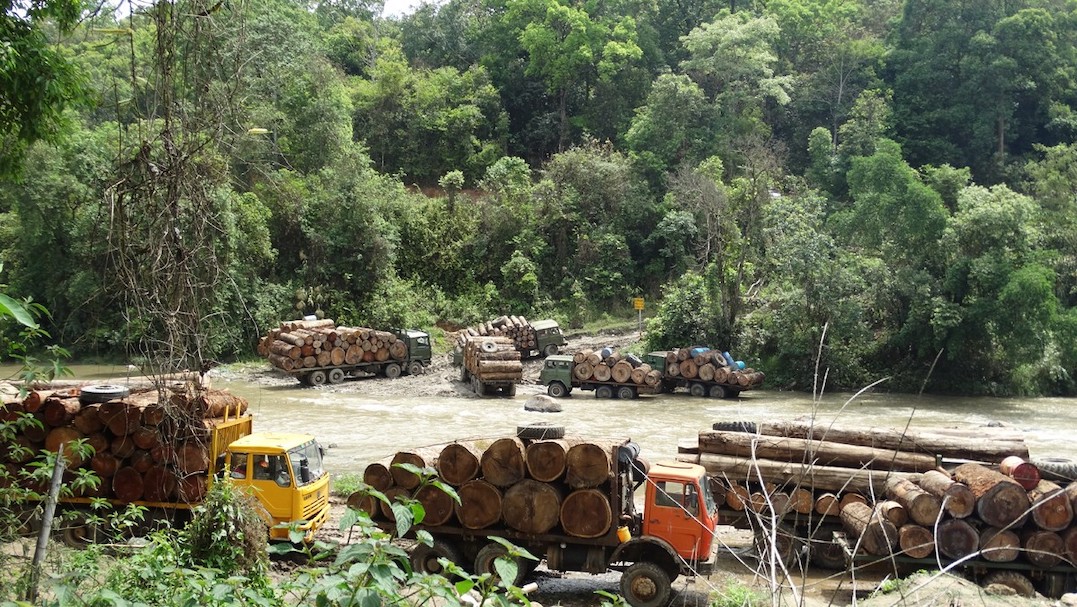CRIME AND CORRUPTION OF MYANMAR’S ILLEGAL TEAK TRADE GOES TO THE HEART OF GOVERNMENT
BANGKOK: For three decades, the multi-million dollar international trade in Burmese teak has been riddled with crime and high-level corruption, driving conflict and human rights abuses in Myanmar.
Now, a two-year undercover investigation by the London-based Environmental Investigation Agency (EIA) has unearthed and exposed a near-mythic ‘Burmese teak kingpin’ at the centre of an international network, the so-called ‘Shadow President of Teak’ who conspired with and bribed the most senior military and Government officials in Myanmar.
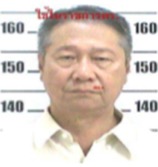
Cheng Pui Chee
The new report, which makes interesting reading, is called State of Corruption: The top-level conspiracy behind the global trade in Myanmar’s stolen teak and reveals how this powerful criminal – identified by EIA as the late Cheng Pui Chee (in Thailand, aka Chetta Apipatana) – was able to establish a secret off-the-books system of fraudulent trade in the cream of the country’s teak logs, a trade run in parallel to, and within, the official legal trade administered by the State-owned Myanmar Timber Enterprise (MTE).
Burmese teak is highly prized for its unique properties and much of the illicit timber goes into neighbouring China, India and Thailand, although substantial volumes have been trafficked via Italy (Trieste) into Europe and the US for use in the luxury yachting sector. The report has more detail on this including naming European counterparts in Cheng’s connections.
“Since 1989, Myanmar’s past military regimes and its current Government have touted the trade in Burmese teak as being wholly legal and sustainable, produced in compliance with the rule of law, but this is simply not the case,” said Faith Doherty, EIA Forests Campaigns Leader.
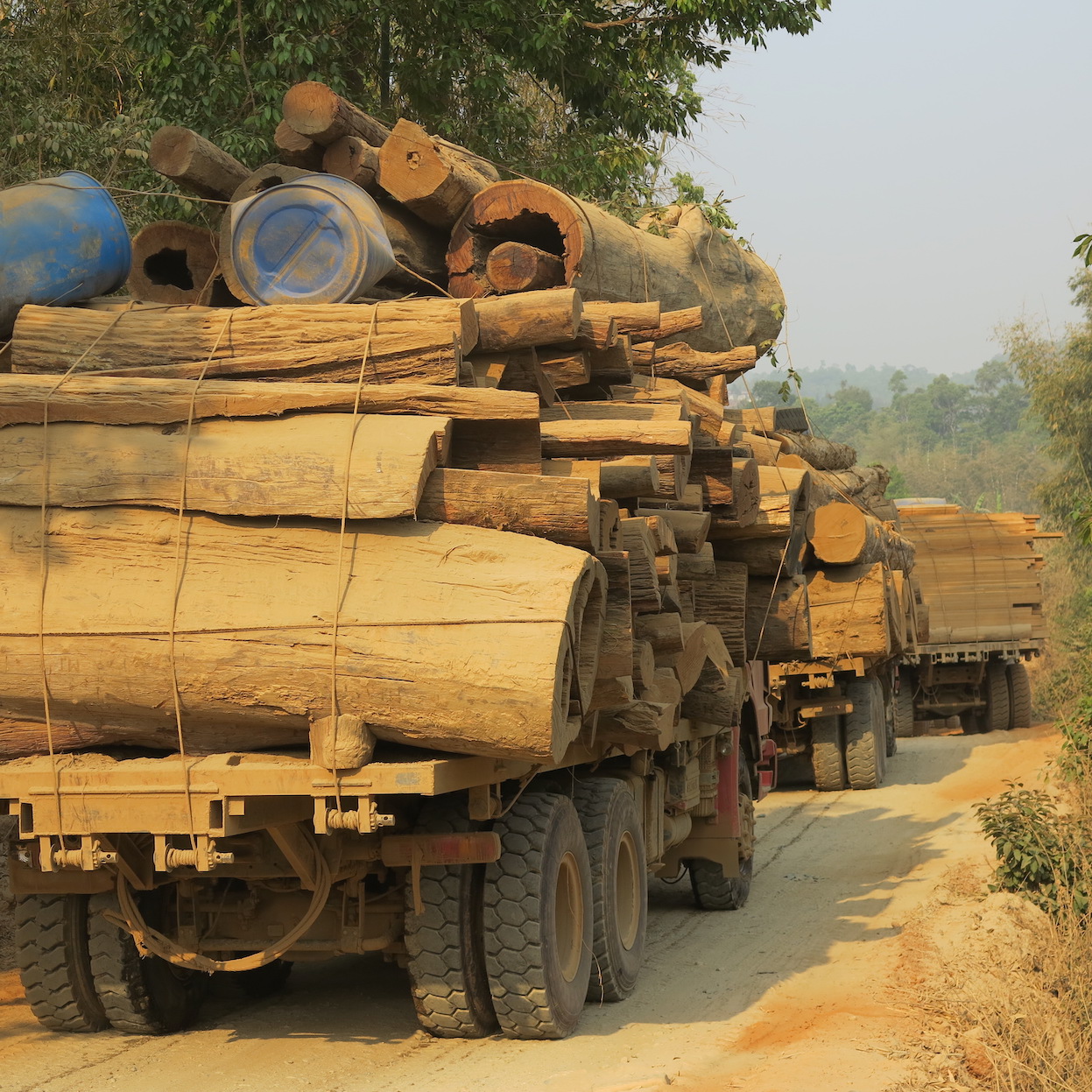
Transporting illegal timber, Myanmar (Burma) © EIAimage
“Our investigations have laid bare a tangled web of businesses, criminal players and corrupt officials and politicians, with this ‘Shadow President of Teak’ squatting in the middle of it and pulling the strands, not only bribing key figures in authority but even going so far as to pay for the education of their children and so effectively buying himself another generation of influence.”
The fraud tainting the Myanmar’s nominally legal teak trade is deceptively simple – once logging quotas have been acquired, the highest quality grades of teak are supposed to be returned to the Government for the MTE to auction off but instead they have been systematically mis-graded and illegally channeled into private hands, depriving the country of tens of millions of dollars annually even as it lines the pockets of the few.
Doherty added: “Our findings also put paid to the constant refrain and official lie that the only illegal timber trade in Myanmar is being carried out by armed ethnic organisations in conflict with the State when the reality is that it has been, and is, conducted with the knowledge and active participation of key figures in the Government.
“The bottom line is that Myanmar’s teak trade is effectively a criminal enterprise and all teak exports to Europe are unable to comply with the European Union Timber Regulation and, by extension, also contravene the USA’s Lacey Act – if you’ve got Burmese teak on your luxury yacht then the chances are that you’re sailing around on stolen goods.”
Among its key recommendations, State of Corruption urges the Myanmar Government to investigate and prosecute high-level corruption, including of military and Government officials as well as private sector actors, and to conduct a full assessment of current forest conditions that includes indigenous communities and people reliant on Myanmar’s forests.
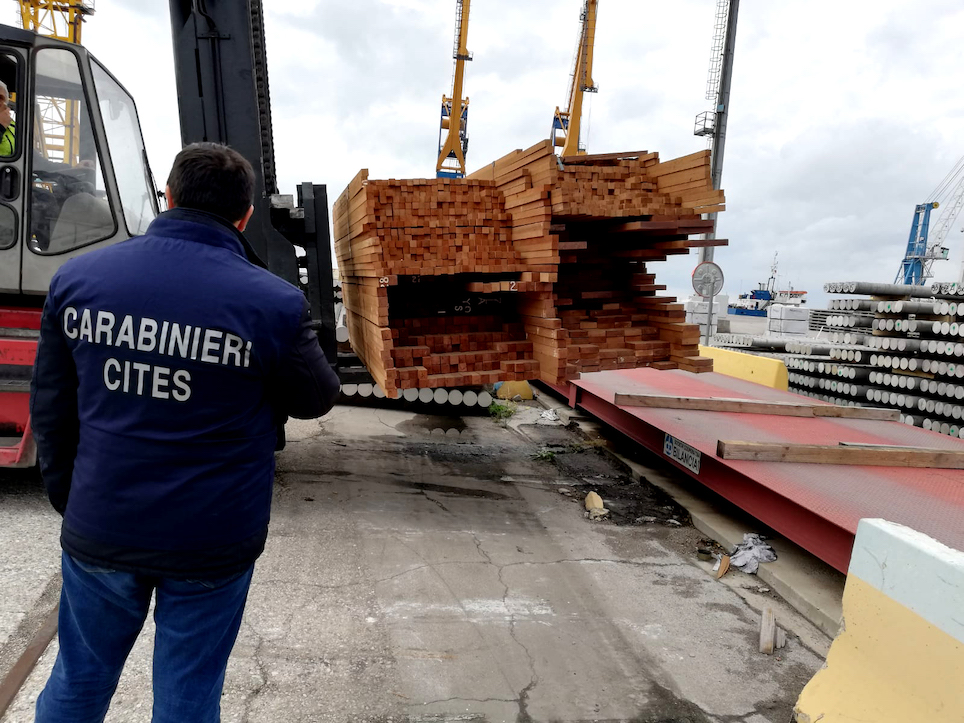
Italian Carabienieri Forestal unload illegal teak held at Trieste port by Timberlux Srl, November 2018 (c)Carabienieri Forestal
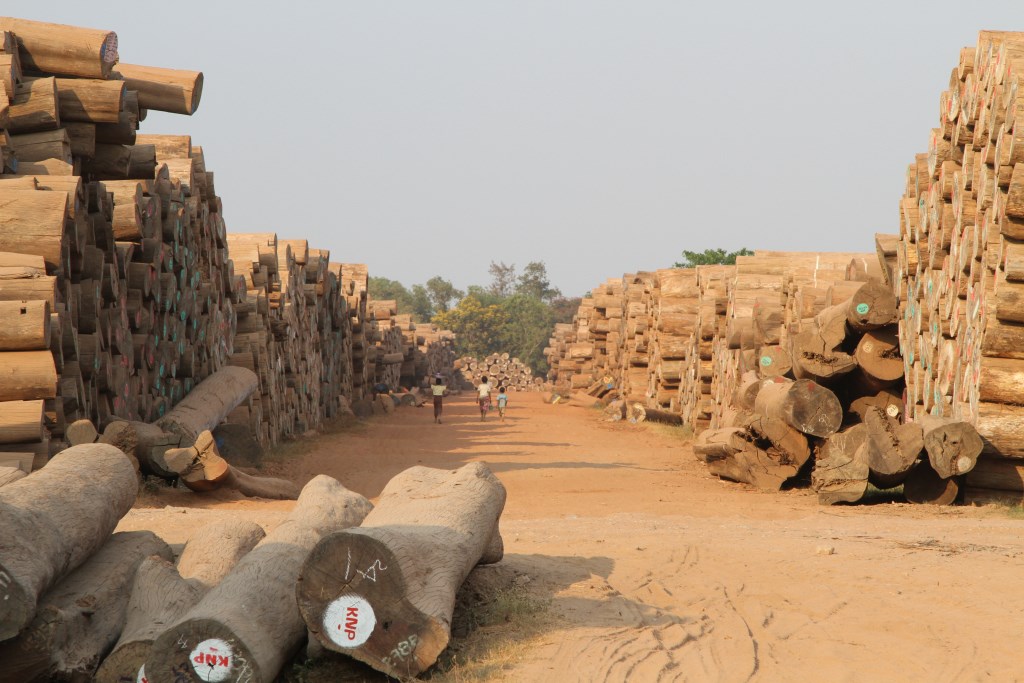
Logs at MTE’s log yard at East Dagon, Yangon, Myanmar, March 2013 © EIAimage
You can download this full report as a pdf: State of Corruption – FINAL
Read the report and watch a video of the from EIA’s seven year investigation: State of Corruption: The top-level conspiracy behind the global trade in Myanmar’s stolen teak
xxxxxxx
From our earlier story
The Environmental Investigation Agency (EIA) is about to expose the systemic corruption, illegal logging and timber smuggling involved in the trade of Myanmar (or Burmese) teak.
“The State of Corruption report will document the findings of the EIA’s two-year undercover investigation into a mythical Burmese teak kingpin who conspired with and bribed the most senior military and Government officials in Myanmar to establish a secret off-the-books system of fraudulent trade in the country’s highest quality teak logs,” says the London-based NGO.
It also documents how this illegal wood enters international markets and calls for heightened enforcement of existing laws in Myanmar, the EU and the US.
The report will be unveiled at a press conference in Thailand on 20 February 2019.
Burmese teak, from Myanmar has been the source of contraversy for well over a decade. Illegal imports continue to arrive in Europe despite Brussels’s European Union Timber Regulation (2013) which requires all users of teak to be able to trace the timber back to the stump, and to verify its legality. “A lot of teak is coming in through Trieste,” says Paul Newman the EIA’s Press & Communications Officer. “Once in Europe it can go anywhere. Burma used to have a reasonably sustainable system (for logging teak) but once it opened for business a few years ago that changed. The problem with their teak now is that it can only be traced back to one massive yard, so there’s no way of doing proper due diligence. So we’d say there was no such thing as legal Burmese teak.”
Myanmar forest authorities are not powerless to prevent illegal logging and in late January police from Phyukon Forest Reserve seized 63 tons of illegally harvested timber from the Bago region. All logging in the Bago Yoma mountains was banned for a 10-year period starting in 2016. In December, 16 boats laden with illegal teak logs, were seized by local authorities in the Mandalay region where regular searches are conducted along the Irrawaddy River.
Teak has long been favoured by boat builders for its natural anti rot properties and is seen by many yacht owners as a desirable timber, which in turn creates a demand that will be satisfied, sometimes, by illegal means.


